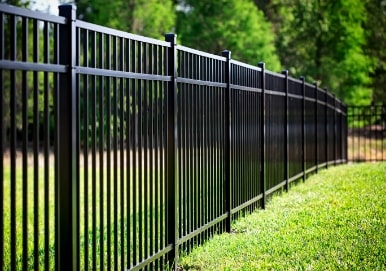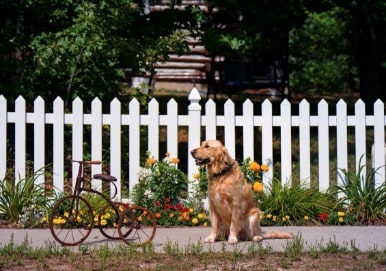A well-designed garden fence is more than just an aesthetic addition to your outdoor space. It serves a crucial role in protecting your plants from pests and wildlife, ensuring that your garden thrives without unwanted interruptions. In this blog post, we’ll explore the benefits of a garden fence, discuss various types of fences, and provide tips on how to choose the perfect one for your garden.
Why You Need a Garden Fence
Gardening can be a rewarding experience, but it also comes with its challenges—particularly when it comes to dealing with pests and wildlife. A garden fence acts as a physical barrier, preventing animals such as deer, rabbits, and other critters from feasting on your plants. Here are some reasons why a garden fence is a must-have:
- Protects Your Plants: A sturdy garden fence keeps out larger animals like deer, which can easily decimate a garden in a single night. It also helps to deter smaller pests, such as rabbits and groundhogs, which can dig under or climb over shorter barriers.
- Defines Your Garden Space: Beyond protection, a garden fence helps define the boundaries of your garden, creating a clear division between different areas of your yard.
- Enhances Aesthetic Appeal: With a wide range of styles and materials available, a garden fence can enhance the overall look of your garden, adding to the aesthetic appeal of your outdoor space. Better Homes & Garden provides some tips for decorative fence ideas if in need of inspiration.

Types of Garden Fences
When it comes to choosing a garden fence, there are several options to consider. The type of fence you choose will depend on the size of your garden, the types of pests you want to keep out, and your personal style preferences. Here are some popular options:
1. Wooden Fences
Wooden fences are a classic choice for many gardeners. They offer a natural look that blends well with most garden landscapes. Cedar and redwood are popular options because they are naturally resistant to decay and insects.
- Pros: Durable, customizable, and aesthetically pleasing.
- Cons: Requires regular maintenance, such as staining or painting, to prevent weather damage.
2. Metal Fences
Metal fences, such as those made from wrought iron or aluminum, provide a sturdy and long-lasting option. They are particularly effective at keeping out larger animals like deer.
- Pros: Durable, low maintenance, and effective at deterring larger animals.
- Cons: Can be more expensive than other options and may not provide the desired level of privacy.
3. Vinyl Fences
Vinyl fences are a popular choice for their low maintenance and long-lasting durability. They come in a variety of styles and colors, making it easy to find a design that matches your garden aesthetic.
- Pros: Low maintenance, weather-resistant, and available in various styles.
- Cons: Can be more expensive initially and less environmentally friendly.
4. Wire Mesh Fences
Wire mesh fences, often made of galvanized steel, are an affordable and effective option for keeping out small animals. They can be easily installed around garden beds or entire garden areas.
- Pros: Cost-effective, easy to install, and good for small animal deterrence.
- Cons: Less visually appealing and may require additional materials for reinforcement against larger animals.
Choosing the Right Garden Fence for Your Needs
When selecting the perfect garden fence, consider the following factors:
- Purpose: Identify the primary reason for installing a fence. Are you looking to keep out deer, rabbits, or other pests? Or are you more concerned with aesthetics and defining your garden space?
- Material: Choose a material that fits your style and budget. Remember that different materials require different levels of maintenance.
- Height and Design: The height of your garden fence will depend on the type of animals you want to keep out. For instance, a deer fence should be at least 8 feet high, while a 2-3 foot fence might suffice for smaller pests.
- Budget: Determine your budget before making a decision. While some fences may have a higher upfront cost, they could save you money in the long run with less maintenance and better durability.
Conclusion
A garden fence is an essential investment for any gardener looking to protect their plants from pests and wildlife. By carefully considering the type, material, and design of your fence, you can create a beautiful and effective barrier that enhances your garden’s aesthetics while keeping your plants safe. If you happen to have a furry friend to keep in, while keeping wildlife out, take a look at our previous blog post.





